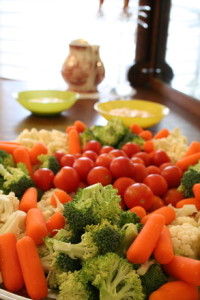
Source of vitamin
It’s time to learn about the best source of vitamin, as these days people tend to pick those multivitamins from the nearby pharmacy and still not include them in diet.
Note: This article is an extension to one of the previous articles: Minerals for Health.
Source of vitamin are required for normal growth of human body and human beings obtain vitamins from food as it cannot be synthesized by the body.
Vitamins are either fat soluble or water soluble. Let’s see what are the great source of vitamin? Fat soluble vitamins include Vitamin A, D, E and K. These can be stored in the body. These are absorbed by fats or lipids in intestinal tracts and can stay in the body for weeks or even months.
However, the water soluble Vitamins like C and B’s cannot be reserved in the body and is expelled from the body through urine.
Now, look into the functions of these vitamins and start loving your veggies and make room for them in your plate as they will act as your life savior and keep you away from many diseases.
Vitamin A (Retinol):
Function:
– Good for immune system, vision and healthy skin.
Sources: Eggs, Cheese, Yogurt, Kale, Spinach, Pumpkin, Apricot, Milk, Carrot, Broccoli, Sweet potato, and Butter.
Deficiency may cause Night blindness, Keratomalacia (which is dry cornea eye disorder).
Vitamin B1 (Thiamine):
Function:
– Required for metabolism and energy production.
– Important in smooth functioning of nervous system
Sources: Pork, legumes, nuts and seeds Whole grain or whole grain bread, Yeast, Sunflower seeds, Brown rice, Whole grain rye.
Deficiency may cause beriberi.
Vitamin B 2 (RIBOFLAVIN):
Function:
– Healthy skin, eyes and central nervous system
Sources: Pork, Veggies, Peas, Fresh and dried fruits, Liver, Eggs, Whole grain bread
Deficiency may cause ariboflavinosis.
Vitamin B 3 (NIACIN):
Function:
– Helps stronger nervous system and digestion
Sources: Meat, Fish, Wheat flour, Eggs and milk.
Deficiency may cause pellagra.
Vitamin B6:
Function:
– Uses the stored energy from carbohydrates and protein
– Helps in building haemoglobin
Sources: Pork, Chicken, Turkey, Fish, Bread, Whole cereals, Oatmeal, Rice, Veggies, Soya beans, Peanuts, Milk, Banana, and Potatoes
Deficiency may cause anemia, peripheral neropathy.
Vitamin B7 (Biotin):
Function:
– Required for energy metabolism
Sources: Egg yolk, Liver, Vegetables
Deficiency may cause dermatitis, enteritis.
Vitamin B9 (Folic Acid):
Function:
– Building of RBCs (Red Blood Cells) and Good CNS (Central Nervous System)
– Needed for making DNA as well
Sources: Broccoli, Brussel sprouts, Asparagus, Peas, Chickpeas, Brown rice
Deficiency may cause birth defects for the newborn during pregnancy.
Vitamin B12 (Cyanocobalamin):
Function:
– Required to build new cells
– Important for nervous function
Sources: Fish, Shell fish, Meat, Poultry, Milk, Dairy products
Deficiency may cause megaloblastic anemia.
Vitamin C:
Function:
– Protects cells, tissues and organs
Sources: Oranges, Red and green bell peppers, Broccoli, Brussel sprouts, Strawberry, and Blackcurrent
Deficiency may cause megaloblastic anemia.
Vitamin D:
Function:
– Healthy bones and Teeth
Sources: Fatty fish, Eggs, Sun dried food, Beef liver and mushrooms.
Deficiency may cause rickets, osteomalacia.
Vitamin E (Tocopherol):
Function:
– Protects cell membranes
Sources: Plant oi like soya, corn, olive, nuts, seeds, wheat germ and cereal.
Deficiency may cause mild hemolytic anemia (in newborns) and it is very uncommon.
Vitamin K:
Function:
– Blood clotting and strong bones
Sources: Green leafy vegetables, Broccoli, Spinach, Vegetable oil, Cereals, Meat, Dairy food
Deficiency may cause bleeding diathesis.
Make sure to include a wide range of varieties of fruits and vegetables in your diet to cover up for all the above vitamins. Non-vegetarians should also include eggs, fish and meat in your diet.
Learn these recipes as they can serve you many sources of vitamins on your plate and also help in maintaining your weight along with a great exercise routine.
Eat healthy and stay fit.

